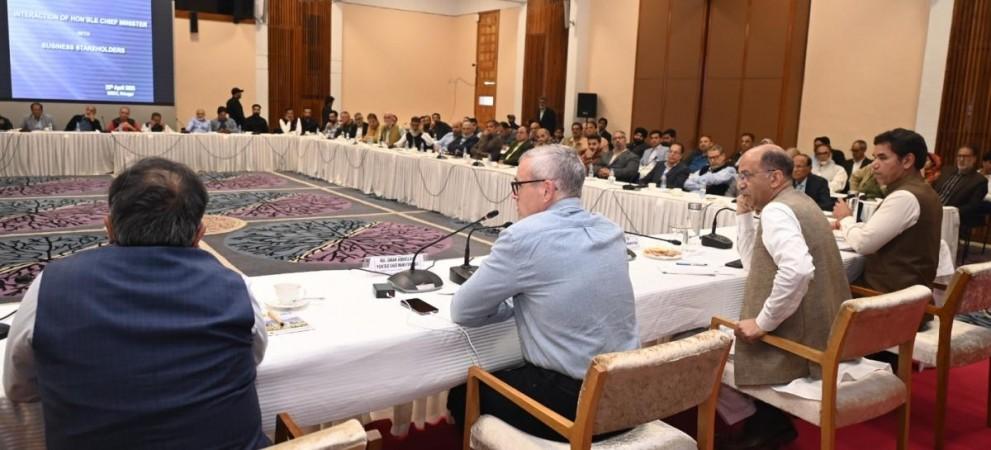
Amid reports that the Union Government is planning to construct a 113-kilometre-long canal to divert surplus water from the western rivers to Punjab, Haryana, and Rajasthan, Jammu and Kashmir Chief Minister Omar Abdullah has strongly opposed the move.
"I will never permit this. Let us use our water for ourselves first. There is a drought-like situation in Jammu," Omar Abdullah said while interacting with media persons in Jammu.
He emphasized that the Union Territory's water resources must be reserved for local use first.
"Why should I send water to Punjab? Punjab already has water from the eastern rivers under the Indus Water Treaty. Did they give us water when we needed it?" he asked.
Omar added that Jammu and Kashmir had long been deprived of their due share. "We were kept waiting for years on the Ujh Multipurpose and Shahpur Kandi Barrage projects. This water is for us. We will use it first, and then think about others."
Regarding plans to utilise water from the western rivers, he said the government is restarting the Tulbul Navigation Project and working on diverting water from the Chenab River at Akhnoor to Jammu.
Earlier, Omar Abdullah had also called for the revival of the Tulbul Navigation Project on Wular Lake, which has remained stalled for decades due to objections raised under the Indus Waters Treaty.
Centre Proposes 113-km Canal to Stop J&K Rivers' Water from Flowing to Pakistan
Following the suspension of the Indus Water Treaty after the horrific Pahalgam terror attack on April 22 this year, the Union Government has initiated a feasibility study for a proposed 113-km canal. The canal aims to divert surplus water from the Chenab River in Jammu and Kashmir to the states of Punjab, Haryana, and Rajasthan.
The proposed canal is expected to integrate with existing canal infrastructure at 13 different points, enabling efficient water distribution across these regions.
It is designed to optimise the utilisation of India's share of waters from both the eastern rivers—Ravi, Beas, and Sutlej—and the western rivers—Indus, Jhelum, and Chenab—under the Indus Waters Treaty.
Notably, the Indian Government suspended the six-decade-old Indus Water Treaty with Pakistan following the terror attack in J&K's Pahalgam, where 26 people, mostly tourists, were brutally killed by Pakistan-backed terrorists.
As part of short-term measures, desilting and flushing of the reservoirs at the Baglihar and Salal hydroelectric projects—both constructed over the Chenab River in the Jammu region—will be undertaken to regulate the maximum possible flow of water.
In addition, reports say that work on the Pakal Dul, Kiru, Ratle, and Kwar hydroelectric projects over the Chenab River in Kishtwar will also be expedited.

















